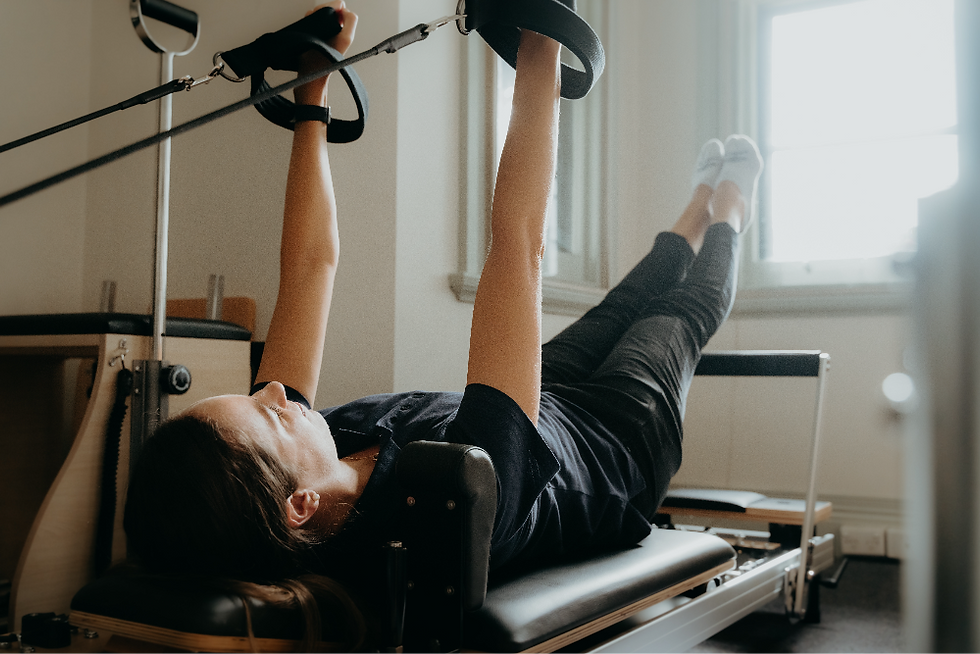Post Acute COVID-19 (Long COVID)
- Maddie Cherry

- Jun 13, 2024
- 4 min read
Updated: 3 days ago
The recovery period from COVID-19 is a gradual process, with two distinct phases that can be marked by Acute COVID-19 and Post-Acute COVID-19 (Long COVID).

Acute COVID-19:
Ongoing symptoms 4 weeks following the onset of illness
Post-Acute COVID-19:
Ongoing symptoms 12 weeks following the onset of illness
Symptoms cannot be explained by an alternative diagnosis
This stage reflects recovery and returning to your usual activities and is not related to an active viral infection
Symptoms of Long COVID can also range from mild to severe. Even mild and moderate symptoms of Long COVID can significantly affect both your overall (physical and mental) health, so it is very important to seek support in your recovery. It's crucial to recognise that COVID-19 differs from the flu or other illnesses, despite similarities in symptoms. The recovery process is unique, potentially taking longer than anticipated. Practice self-compassion and grant your body the time it requires to heal.

Common/possible symptoms of Post-Acute COVID-19 (Long COVID):
Mental and Physical Fatigue
Brain Fog, Word Finding Difficulties and Trouble Concentrating
Headache
Persistent cough
Loss of sense of smell, taste or appetite
Chest pain and/or heart palpitations (heart racing)
Shortness of breath or difficulty breathing
Persistent muscle pain, stomach pain and/or nausea and vomiting
Constipation or diarrhea
Sleep concerns
Voice or swallowing problems
Poor mental health

CHECK YOUR SYMPTOMS- Use the Symptoms Checker and find out if you need to seek medical help
What is Fatigue?
Fatigue is more than just feeling tired. Fatigue can affect you physically, making your limbs seem heavy and causing you to feel exhausted. Fatigue can also affect your concentration and motivation. We know with Post-Acute COVID-19 (Long COVID) related fatigue, doing even small tasks can be exhausting. Fatigue can also present as mental fatigue which affects our cognitive function and thought processes, this can cause difficulty in concentration and reduced alertness.
How to assist in managing your fatigue?
1. Pacing
Pacing is an important strategy to manage your energy levels throughout your recovery. Pacing involves planning and considering activities throughout the day and incorporating rest breaks to avoid overexertion.
Pacing involves listening to your body and acknowledging the signals it may be sending you. If you feel tired, it is important to take a break before your energy crashes completely. It is important to gradually increase activity levels as your tolerance improves and ensure you do not push yourself too hard, too soon.
Read more about pacing here
2. Rest and relaxation techniques
Prioritising sleep. Aim for 7-8 hours of quality sleep each night.
Scheduling regular rest breaks throughout the day, even if it's just for a few minutes.
Practice relaxation techniques such as deep breathing, meditation, or gentle yoga to manage stress and promote better sleep.
Reducing stimulus - our brains are constantly processing a large input amount of information (see diagram below), so reducing light and sound stimulus can assist with reducing mental fatigue. This may include: resting in a dark room and wearing noise-canceling devices to reduce sound stimulus.
Sometimes active rest like restorative clinical pilates can help down-regulate your nervous system, while still helping you move.

3. Lifestyle considerations
Maintaining adequate hydration. Drinking plenty of water throughout the day to stay hydrated and support overall health.
Eating a balanced diet with regular meals and snacks to maintain energy levels. Avoid sugary foods that can cause energy crashes and eat whole foods where possible.
Limiting stimulants like caffeine and alcohol, which can disrupt sleep and worsen fatigue.
Managing stress. Chronic stress can exacerbate fatigue. Practice relaxation techniques and find strategies that work for you personally.
Again gentle exercise like clinical pilates, yoga, walking or swimming can also help here.
4. Seeking support
Having the support of a doctor and allied health professionals will ensure you have the best evidence-based treatment plan. Maddie our brilliant Exercise Physiologist has completed extra research and study to support those living with long covid - please reach out if you have any questions ! Maddie@movesportsphysio.com.au
Connecting with support groups can be helpful, to share your experiences with others who understand long COVID can be helpful.
It is important to continue to engage with loved ones, family and friends, as often as possible, as this can assist to improve your wellbeing throughout this period.
Don't let lingering COVID symptoms hold you back! Our expert physiotherapists and exercise physiologists at MOVE Sports Physio are here to help you manage and overcome common Long COVID issues.
Call us today and take control of your recovery! Don't want to call - Maddie has a passion to help those move who live with invisible illness - reach out and email today! Maddie@movesportsphysio.com.au
Remember: Recovery from Long COVID will take time - be patient and kind to yourself, focus on manageable goals and continue to notice and celebrate the small changes.
For More PHYSIO FACTS:



